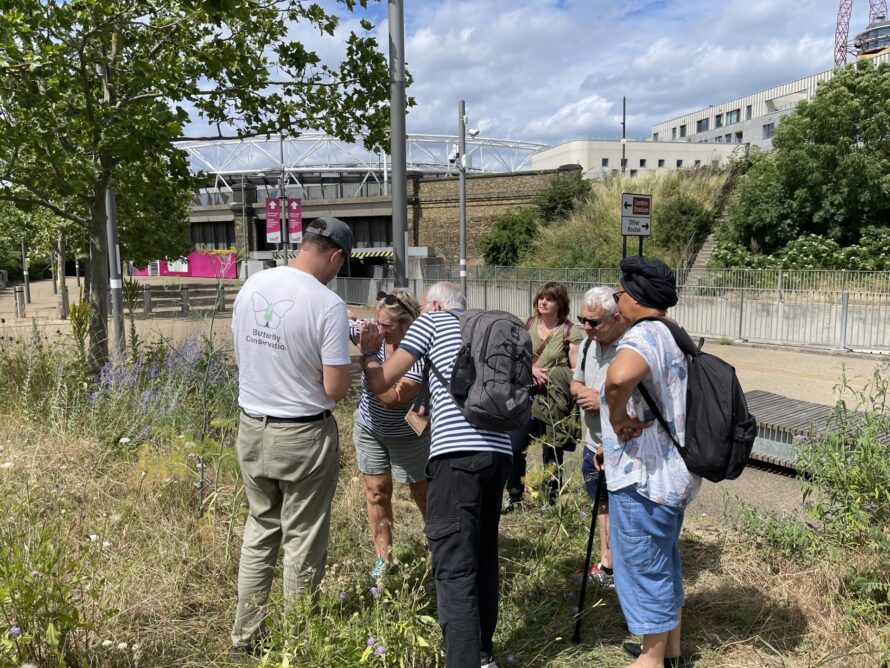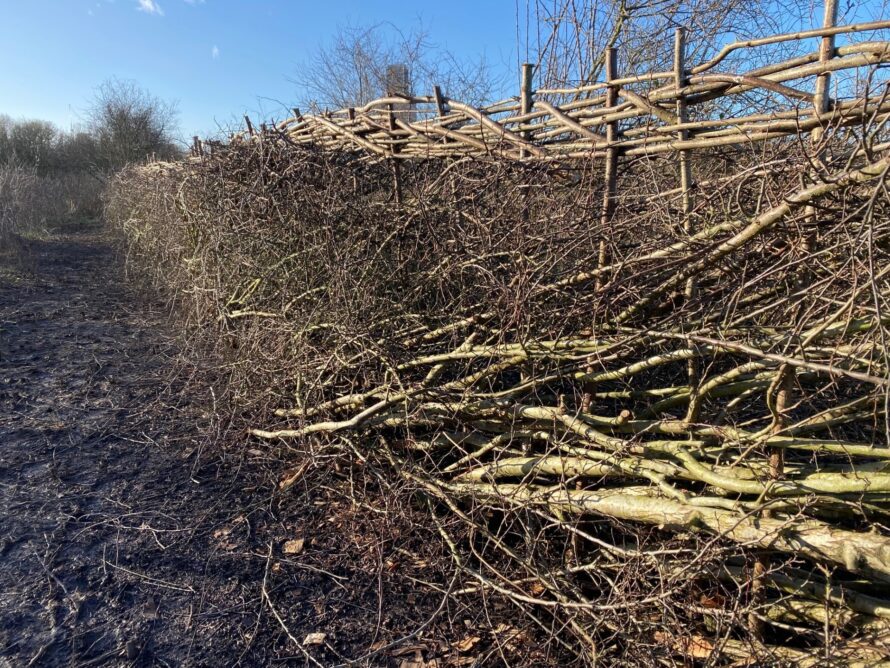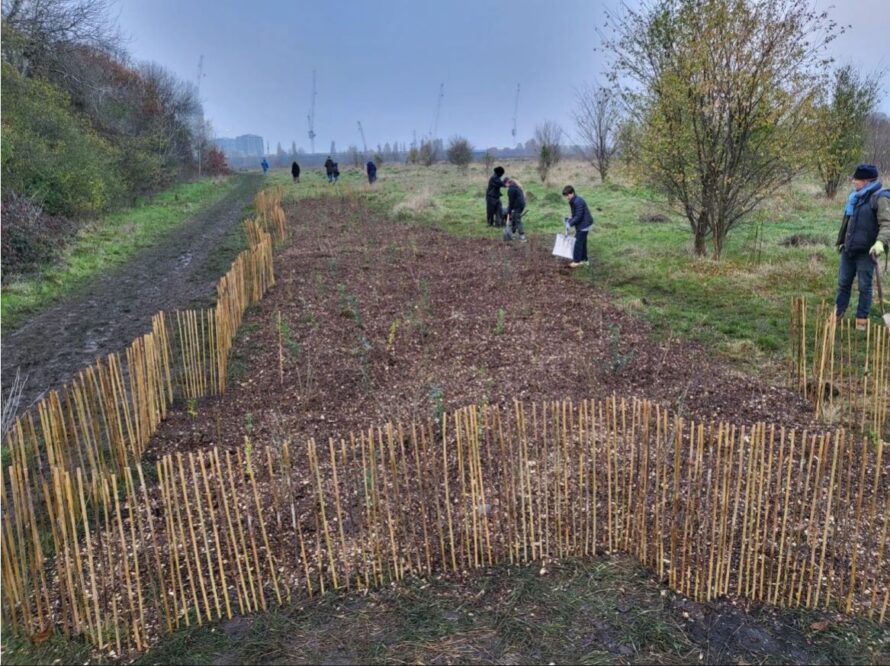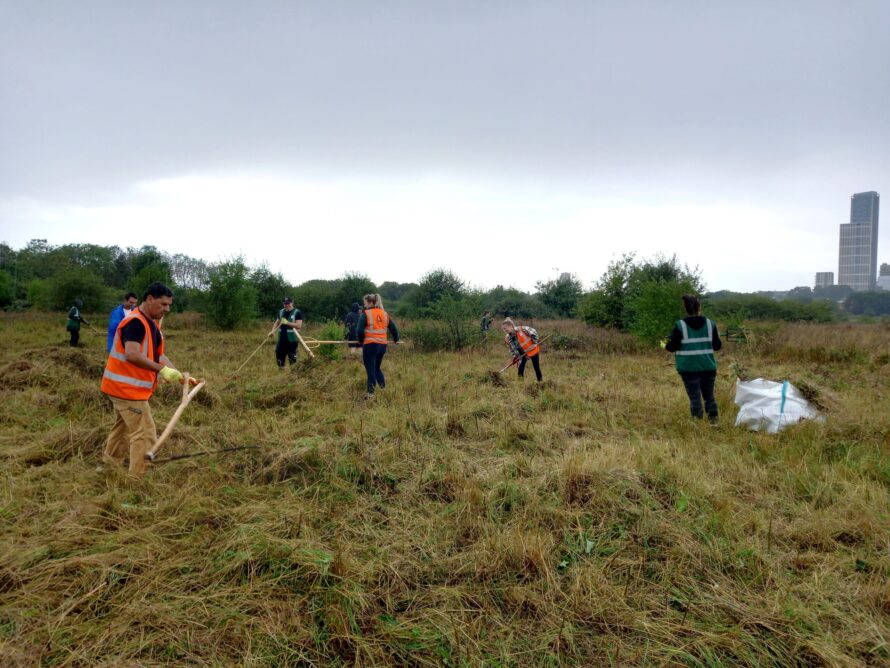Swift Response by idverde Teams Clears Trowbridge Road After Bin Lorry Fire
In a commendable effort, idverde teams played a crucial role in the cleanup operation
Grounds Maintenance, Landscape Creation, Arboriculture, Sports Surfacing, Parks management, IOS Managing Safely Training, Ecology & Biodiversity, Grass cutting, Horticulture, Street Cleaning, Soft Landscaping, Hard Landscaping
idverde provides a wide range of green services, including grounds maintenance, landscape creation, and advice services, to both private and public sectors across the UK.
idverde are very proud of our partnership with the Royal Society for the Protection of Birds (RSPB), where together we manage two of London’s most important green spaces for wildlife – Queen Elizabeth Olympic Park (QEOP) and Wormwood Scrubs. These sites are home to a rich diversity of habitats and species, from wildflower meadows and wetlands to woodlands and hedgerows. But none of this would be possible without the help of our dedicated and enthusiastic volunteers, who give their time and energy to support our conservation work.
At QEOP, our advisor Tom Bellamy has been busy coordinating a range of volunteer tasks to enhance the biodiversity of the North Park meadows. These meadows are a vital habitat for pollinators, birds and other wildlife, and require regular management to maintain their quality and diversity.
In October 2023, Tom had a group of 45 volunteers cutting the NC10 and NC35 meadows with scythes, accruing 180 volunteer hours. Tom said ‘’This traditional method of cutting grass helps to create a mixed height sward, as different people cut the grass in different ways. This inconsistency is beneficial for invertebrates as it traps warm air and longer areas offer shelter. The arisings (cut materials) are raked away to stop nutrients being returned to the soil. Wildflowers grow best in nutrient poor soil.’’

In November 2023, Tom and the team welcomed 112 volunteers from Shiseido, a global beauty company, who funded 2500 native perennial wildflower plugs for the North Park meadows. The group helped cut the meadows with scythes, planted the plugs and cut bramble from the swales, creating 560 volunteer hours. The plugs included species such as oxeye daisy, knapweed, yarrow and selfheal, which will add colour and nectar to the meadows next year.
We also had another 15 volunteers cut another section of the NC10 meadow, adding another 60 volunteer hours to our total.
Tom also led some pond clearing tasks with the North Park Team and some trainee gardeners. They removed excess vegetation from four ponds in the North Park and one pond in the Great British Garden, to stop them from closing up and improving their water retention capabilities. This will also allow more species to colonise and improve the species diversity of the ponds.
Finally, Tom delivered a training session to a Park Champion Volunteer and some Ground Works staff at the Mobile Garden, to educate them on how to garden more effectively for wildlife. He also gave a talk to the local RSPB group in Croydon, talking through the partnership and how we manage QEOP for wildlife.
At Wormwood Scrubs, our advisor Kate McVay has been overseeing a variety of volunteer projects to improve the habitat quality and connectivity of this unique site. Wormwood Scrubs is one of the largest areas of semi-natural grassland in London, and supports a range of rare and threatened species, such as skylarks, meadow pipits and common lizards.
For 2023, we had a total of 1472 volunteers amounting to 6525 volunteer hours! This is an increase from 2022 (1216 volunteers, 6222 volunteer hours), and we are hoping that the numbers will keep increasing. One of Kate’s biggest goals at the end of 2022 was to get more local volunteers out, and she was able to achieve just that!
One of the main tasks that our volunteers have been involved in is hedgelaying. This is a traditional technique of cutting and bending the stems of hedgerow plants to create a dense and living fence. This was the third year of our hedgelaying project, and we have laid a total of 500 metres of hedge over those three years. This season, we were able to lay 175 metres thanks to the huge number of volunteers joining us. This project was aimed at rejuvenating the hedgerow, reducing perching sites for corvids that may predate ground nests, providing a safe travel corridor for wildlife on site, directing footfall away from more ecological sensitive areas and upskilling lovely members of the local community.


Another task that Kate and the volunteers have been busy with is whip planting. A whip is a young tree that has been grown from seed or cuttings, and can be easily planted in the ground. We have planted 1400 whips from two different projects. The first was with Lloyd’s Bank, who helped us to plant a mini forest aimed at extending the size of an existing woodland copse and increasing species diversity in the area. The second was with the 21st Hammersmith Scouts, who came out to plant 1000 trees in celebration of their 100-year anniversary on National Tree Week. Species were selected based on providing benefits to wildlife on site, such as hawthorn, hazel, dogwood and crab apple.
A third task that our volunteers at Wormwood Scrubs have been doing is scrub cutback. Scrub is a term for woody vegetation that grows in open habitats, such as grasslands and heathlands. Scrub can provide valuable shelter and food for wildlife, but it can also encroach on other habitats and reduce their quality and diversity. Therefore, scrub needs to be managed carefully to balance the needs of different species. This work was part of the proposed Local Nature Reserve management plan that Kate wrote mid 2023. All of the cutbacks were done by hand to ensure the most sensitive approach was being employed. Cutting by hand allowed us to implement scalloped edges, rides and glades within patches of scrub, which will confer the most benefits for wildlife.

A fourth task that our volunteers have been doing is bulb planting. We planted 4000 bulbs with the Community Payback team at three entrances to the site. Planted bulbs include a mix of native bluebells, snowdrops, wild garlic, snake’s head fritillary and crocuses (which are popping up right now!). These bulbs will add a splash of colour and fragrance to the site, and attract pollinators and other insects.
Thank you to all our volunteers!
We are really grateful to all our volunteers who have helped us with these and other tasks throughout the year. You have made a huge difference to the wildlife and people who enjoy these green spaces. We hope you had fun and learned something new along the way. If you are interested in volunteering at QEOP please click here
We look forward to seeing you again in 2024.